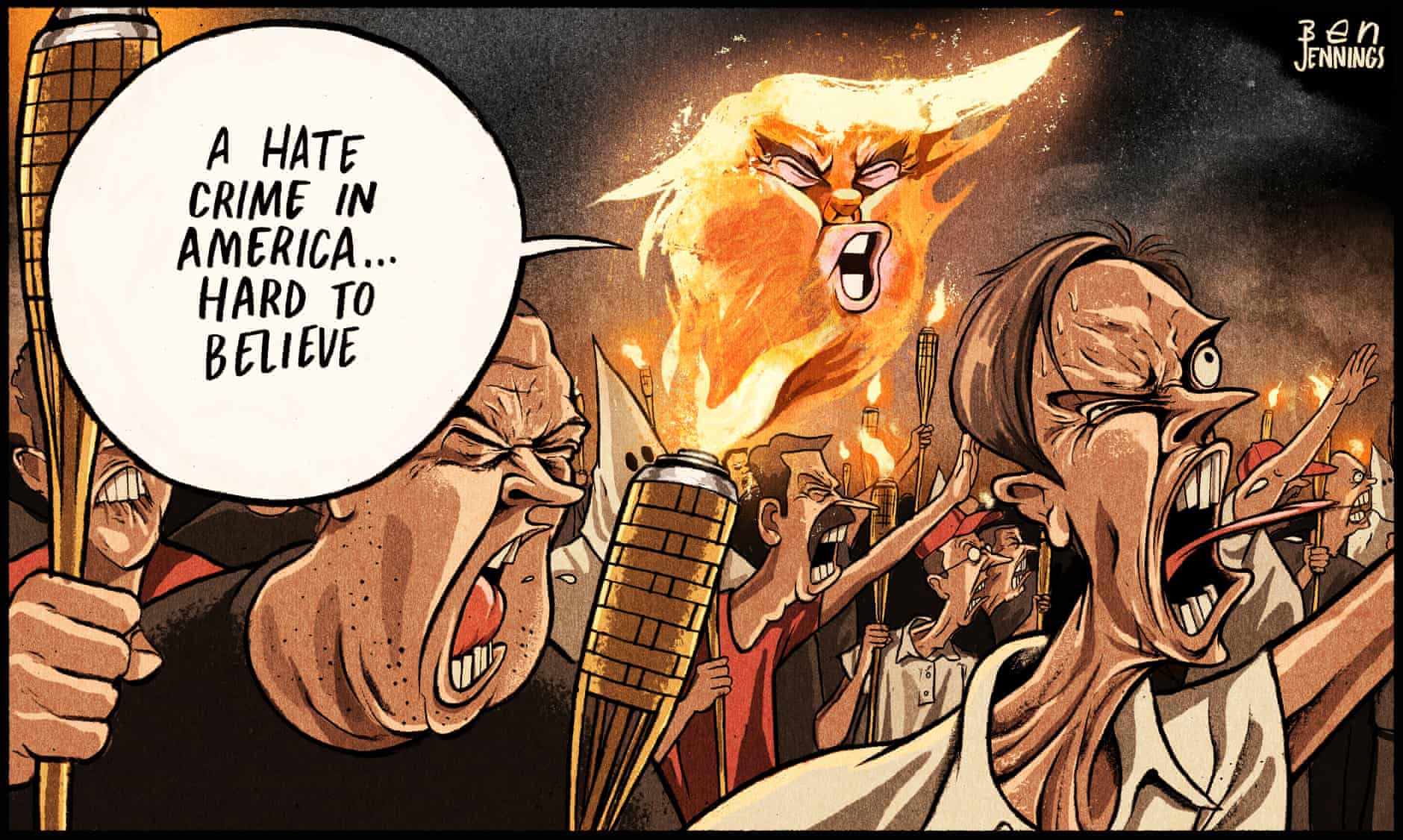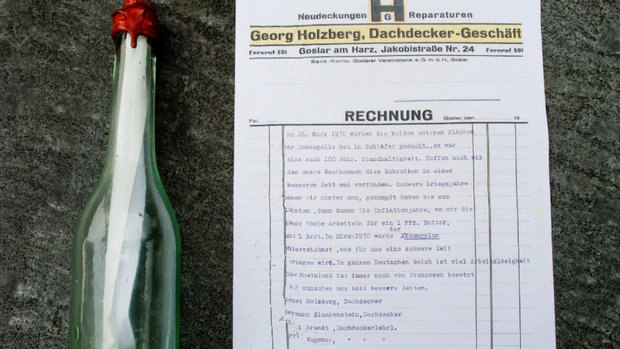"It's well worth a challenging read-and-think on everyone's part at this particular moment in the country and society."
Tag: Society
Home
Society
Post
20-Sep-1825-Feb-26Around the World, Germany, History, Hope for the Future, Hubris, Loss, Society
German Roofer Finds Message from Grandfather
A message in a bottle on the roof of a Goslar, Germany, cathedral was found by the grandson of the writer. An authentic lesson from history: “On March 26, 1930, four roofers in this small west German town inscribed a message to the future. “Difficult times of war lie behind us,” they wrote. After describing...



